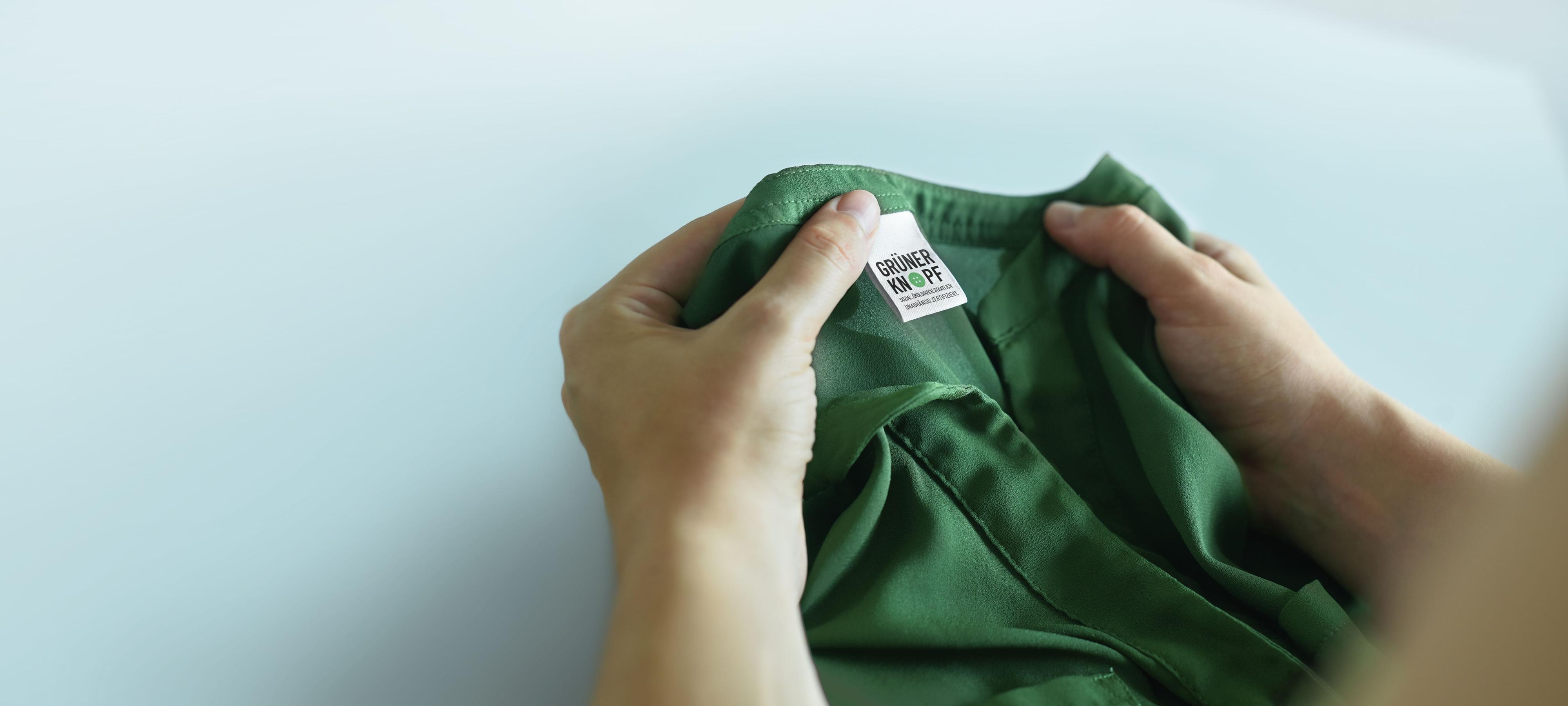Sustainable textiles Government-run Green Button textile label celebrates second anniversary
“The Green Button is a success story: two years ago we began with 27 companies. Today we have almost three times that number: 78 companies are participating. A hundred more have applied to use the label. The Green Button is known to 40 per cent of Germans. Interest in the label is also reflected at the shop counter: so far, 150 million textile items with the Green Button label have been sold. Purchases in the last six months were higher than ever before – despite COVID. If you look at other sustainability labels, you will not find many that have established themselves in the market so quickly.
Sustainability is a topic that can no longer be ignored. The Green Button has had a good market launch: with brands like Trigema, Jack Wolfskin and Esprit participating, and likewise major chains such as Tchibo, Aldi, Lidl and Rewe. They are also showing that garments produced sustainably do not have to be expensive. More and more institutional buyers are putting their trust in the Green Button as well: Caritas and Diakonie [the social welfare organisations of the Catholic and Protestant churches in Germany] want to change over to Green Button textiles for all their 56,000 establishments such as hospitals and old people’s homes with their 2.2 million beds. Deutsche Bahn has already had the new uniforms for its 43,000 employees certified. The same goes for many fan articles offered by Bundesliga football clubs. These are super examples of businesses taking their responsibility seriously. I am very pleased to see this happening.
In terms of sustainable procurement, the government is not achieving the goals that it has set itself. That is why our goal must therefore be: to make the Green Button the standard label for public procurement, in all municipalities as well as in government-run facilities.”
Two years ago, on 9 September 2019, Development Minister Gerd Müller launched the Green Button.
- Since then 78 companies have been certified. Three times the number at the launch.
The Green Button can be found on fashion garments, outdoor wear, home textiles and work clothes.
- From 1 January 2020 to 30 June 2021, about 150 million textile items with the Green Button label were sold:
First half of 2020: 50 million textiles
Second half of 2020: 39 million textiles
First half of 2021: 57 million textiles - In the first half of 2021, the total volume of Green-Button-certified textiles sold rose by 45 per cent compared with the second half of 2020.
- In the product group clothing textiles, the number of Green-Button-certified products sold rose by 49 per cent in the first half of 2021 compared with the second half of 2020, in the product group home and household textiles the increase was 32 per cent and in the product group shoes and accessories it was 50 per cent.
According to a survey carried out by the market research institute GfK, 40 per cent of Germans know the Green Button and almost half of them have already bought a product with the GB label.
The Green Button is now established internationally: it is a protected EU label – major German retailers with branches throughout Europe are already using it.
Foreign companies, too, are able to get their products certified with the Green Button label.
As the first government-run label, the Green Button does not just set standards for the products (T-shirts, bed linens), it also has requirements for the textiles companies.
There are 46 social and environmental criteria that must be fulfilled for the Green Button, including paying minimum wages, banning enforced and child labour, and banning the use of dangerous chemicals.
